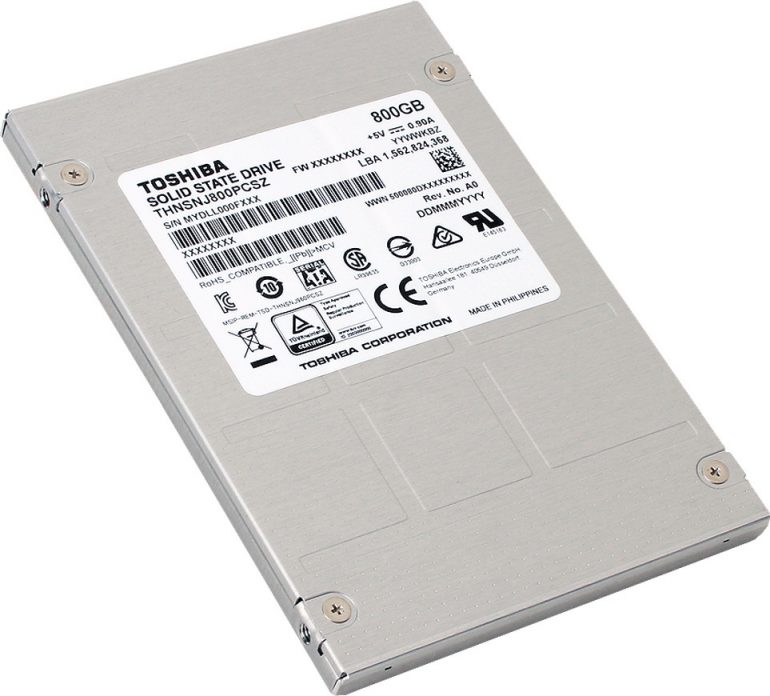Toshiba has announced two new solid-state drive families on its web site that carry the rather strange and difficult HK3R2 and HK3E2 brand names. The two families come with the latest SSD technologies including the most popular 2.5-inch form factor and support for SATA 3.0. It is also worth mentioning that the new drives are just 7 mm thick, which makes them suitable for notebooks and other portable devices.
We’ll pay attention to the HK3E2 family first. This one features enhanced capacities and maybe that’s why it has the letter E in the brand name. Anyway there are three models in this line with capacities of 200 GB, 400 GB and 800 GB. The drives are designed for heavy use and they can sustain three DWPD (Diskful Writes Per Day) for a period of five years. This means that you can write and erase 200 GB or 400 GB or 800 GB of data, depending on the model, three times a day and then be confident that your SSD will live five years. Not bad at all!
Here’s some hard specs data – the drives use 19 nm Toshiba 2nd generation MLC NAND flash memory and reach 500 MB/sec of sequential read speed and 270 MB/sec (200 GB model) and 400 MB/sec of sequential write speed (400 GB and 800 GB models). Also expect 75 000 IOPS when performing random reads of 4K blocks and then 20 000 IOPS (200 GB model) and 30 000 IOPS (400 GB and 800 GB models) when performing random writes of 4K blocks.
The HK3R2 line is a more ordinary one – it has four models with capacities of 120 GB, 240 GB, 480 GB and 960 GB and is designed for moderate use – you can perform one DWPD per day and then expect the drive to last for five years. The drives use the same Toshiba 19 nm MLC NAND flash memory and reach 500 MB/sec of sequential read speed and 120 MB/sec (120 GB model), 270 MB/sec (240 GB model) and 400 MB/sec (480 GB and 960 GB models) of random write speed. Also you get the same 75 000 IOPS when performing random 4K reads but the picture is different when performing random 4K writes – the 120 GB model offers just 4 000 IOPS, while the 240 GB, 480 GB and 960 GB models reach 10 000, 12 000 and 14 000 IOPS respectively.
No word on pricing but since these drives are not the fastest we have seen we do not expect them to be too expensive.
Source: Toshiba
